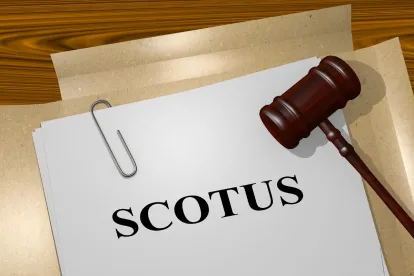It has been two years since the Supreme Court handed down its opinion in Ford Motor Co. v. Montana Eighth Jud. Dist. Ct., 141 S. Ct. 1017 (2021), holding that Ford could be subject to personal jurisdiction in Minnesota and Montana because the suit “related to” the company’s contacts with the states, even though there was not a causal relationship between Ford’s contacts with the forum and plaintiffs’ claims. The Court’s ruling clarified its decisions in Bristol-Myers Squibb Co. v. Superior Ct. of California, San Francisco Cnty., 137 S. Ct. 1773, 1780 (2017) and Daimler AG v. Bauman, 134 S. Ct. 746, 749 (2014), which held that for state courts to exercise specific jurisdiction, the suit must “arise out of or relate to the defendant’s contacts with the forum.” As Justice Kagan explained, “[t]he first half of that standard asks about causation; but the back half, after the ‘or,’ contemplates that some relationships will support jurisdiction without a causal showing.” Ford at 1026. Because claimants alleged a defective Ford vehicle caused the crashes and harm at issue, and “Ford had systematically served a market in Montana and Minnesota for the very vehicles that the plaintiffs allege malfunctioned and injured them in those States,” there was a strong “relationship among the defendant, the forum, and the litigation” such that Ford could be subject to personal jurisdiction in those states. Id. at 1028.
Justice Kagan emphasized that, although a causal link between the defendant’s contacts to the forum and the suit was not needed, “[t]hat does not mean anything goes. In the sphere of specific jurisdiction, the phrase ‘relate to’ incorporates real limits, as it must to adequately protect defendants foreign to a forum.” Id. at 1026. However, the Court left litigants guessing as to what those “real limits” might be.
A recent decision from the Ninth Circuit is the latest federal decision to help explain the “real limits” of personal jurisdiction in the wake of Ford. Yamashita v. LG Chem, Ltd., No. 20-17512, 2023 WL 2374776 (9th Cir. Mar. 6, 2023) is one of a number of recent cases involving injuries from malfunctioning lithium ion batteries in e-cigarettes where courts have grappled with the limits of personal jurisdiction in the wake of Ford. In Yamashita, a Hawaii resident, who purchased an LGC battery from an unidentified third party, brought suit against South Korean battery manufacturer LG Chem, Ltd. (“LGC”) and its US-based marketing subsidiary LG Chem America, Inc. (“LGCA”) after the battery exploded and injured him. Certain of LGC’s contacts with Hawaii—consumer products sold in Hawaii containing LGC’s batteries and third party website sales of LGC batteries—merely showed LGC placing products into the stream of commerce and were not acts purposefully directed toward the forum state. LGC’s other contacts with Hawaii—shipments through the port of Honolulu and sales of residential solar batteries—constituted purposeful availment of the privilege of conducting activities within Hawaii, but did not show either but-for causation or relatedness to plaintiff’s claims. Plaintiff did not allege LGC or LGCA shipped the subject battery into Honolulu, nor did LGC’s activity in the solar battery market lead or relate to the introduction of the e-cigarette battery that caused the injury. The shipment of raw materials or other products through the port was not analogous to the sales of relevant automobile models to the forum in Ford, and the large LGC batteries installed in stationary, residential solar-power systems in Hawaii and the small portable stand-alone battery at issue in the case were “as different as sedans and 18-wheelers.” Id. at *7. Analyzing the “related to” test from Ford, the court explained that “[i]n effect, relatedness proxies for causation, ensuring jurisdiction over a class of cases for which causation seems particularly likely but is not always easy to prove. On this line of reasoning, a plaintiff’s injury relates to a defendant’s forum contacts if similar injuries will tend to be caused by those contacts.” Id. at *6. Given that plaintiff could not show that his injury arose out of or related to LGC or LGCA’s Hawaii contacts, the Ninth Circuit found that the district court did not err in dismissing the case for lack of personal jurisdiction.
As the Yamashita court explained, “Ford modified but did not abolish the requirement that a claim must arise out of or relate to a forum contact in order for a court to exercise specific personal jurisdiction.” Id. at *9. While plaintiffs may seek to rely on Ford to advance suits in jurisdictions with tenuous connections to defendants, courts will need to apply long-standing rules of jurisdictional due process to limit attempts at forum shopping and ensure that litigation proceeds in the right forum.
Madison W. Sherrill also contributed to this article.




 />i
/>i
